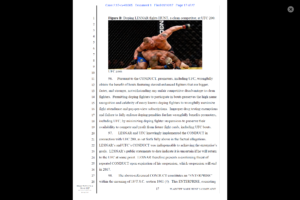The U.S. Supreme Court heard oral arguments in the case of whether a Portland, Oregon-based rock band can trademark the name, The Slants. The long, winding case history stems from whether an Asian American rock group could call itself a traditionally derogatory name.
According to the band’s leader, the name was meant to empower and retake the meaning of the racial slur which refers to the physical eye trait of many Asians.
The Court seemed weary of the portion of the 1946 Lanham Trademark Act which prohibits the registration of a trademark that “may disparage…persons, living or dead, institutions, beliefs, or national symbols, or bring them into contempt, or disrepute.” Some of the justices believed that it would engage the government in determining “viewpoint discrimination” as there would need to be a determination on whether a trademark was positive or negative speech. The example of whether an entity could trademark The Slants are Superior was used as an example.
The justices noted that negative or even offensive speech is eligible for copyright protection but the Lanham Act precludes this happening for trademarks.
Justice Anthony Kennedy noted, “So the government is the omnipresent schoolteacher?”
On the other side, the justices took issue with The Slants attorney as they indicated that the band was free to call themselves the name but they are asking the government to endorse it via a federally registered trademark.
They also found it hard to reconcile the issue that the trademark office could deny registration that denigrated an individual or a competitor’s product yet still be protected under the First Amendment. A hypothetical which would allow trademark rights to a libelous mark in which a court may find such cause of action and subsequent damage might still be protected under the First Amendment. The circular application of law did not make sense to the justices.
The written opinion will not be out until June and its hard to make a call on how this will turn out.
The NFL’s Washington Redskins will be interested onlookers as their “Redsins” mark was cancelled under the same section of the Lanham Act as cited here before the court. If the Court strikes down the portion of the Lanham Act, the Redskins will certainly seek to reapply its mark.
The issue seems to hinge on whether the justices believe the application of the Lanham Act seeks to overreach in dragging the government into determining what is discrimination versus reconciling the Lanham Act and the First Amendment.

